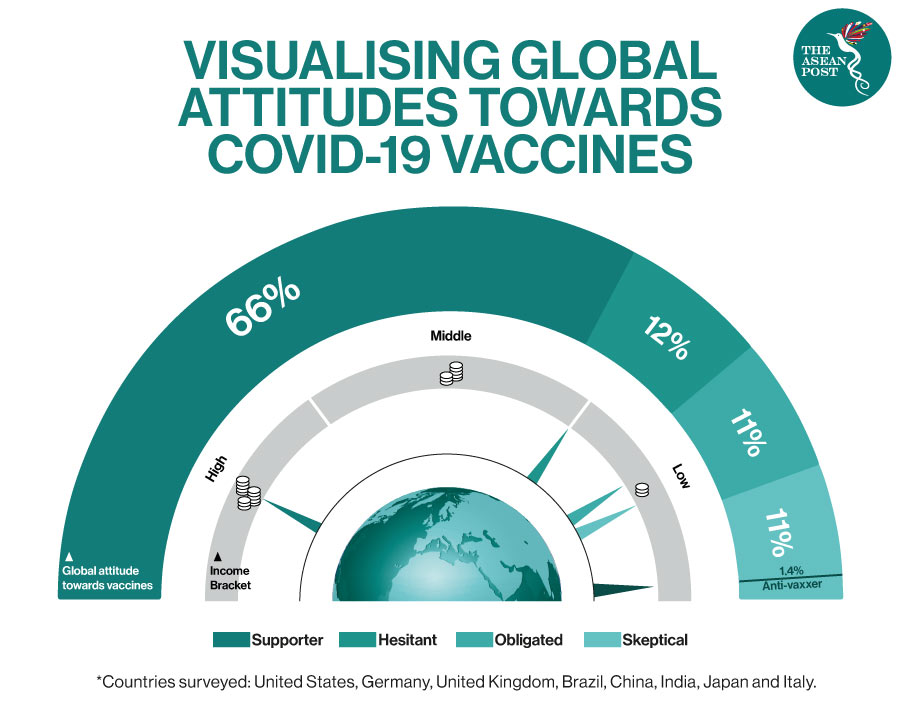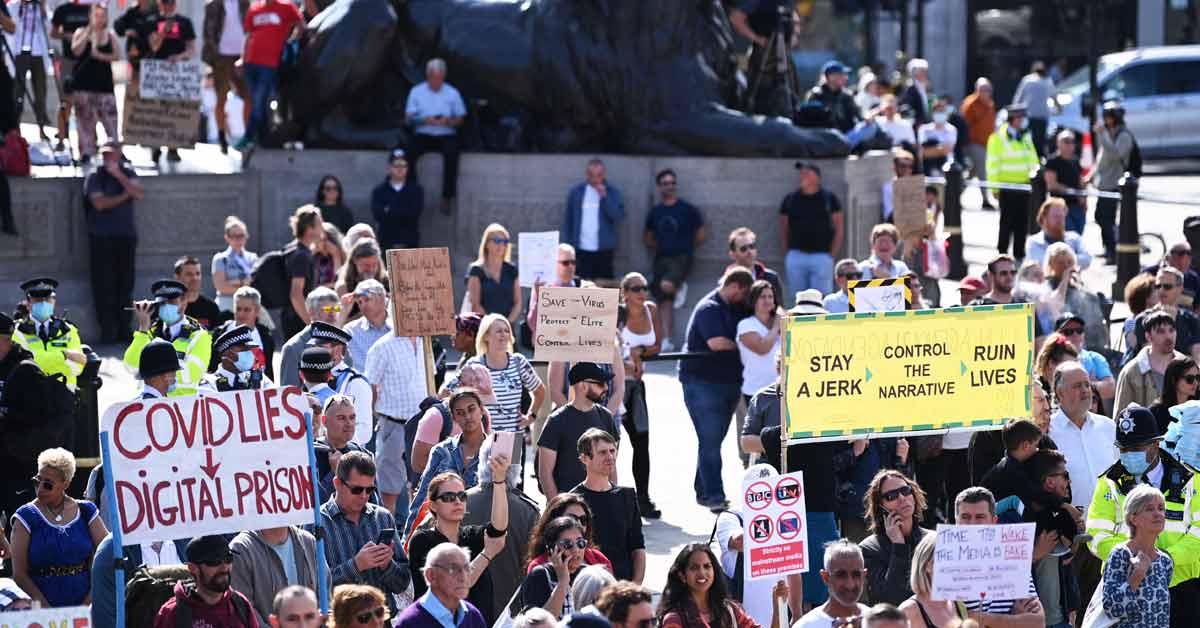During the pandemic, an international movement opposed to COVID-19 vaccines and restrictions has grown on social media, often muddled with conspiracy theories and dangerous falsehoods. Now some committed activists are pursuing a new direction - organising online dating, house shares and possibly even blood banks just for the unvaccinated.
"I mean, I'm not at that stage yet. I quite like the coffee shop and having my flat white," Michele explains, her blonde hair dancing in the blustery sea breeze as we sit by the beach in Brighton.
"But if the time comes, I'll give it all up."
She's not talking about quitting caffeine or giving up on chocolate. Michele is contemplating opting out of mainstream society altogether - because of her opposition to the COVID-19 vaccines.
"It's going to be like the people you see in the movies living on the other side of the city wall," she laughs.
Michele is a leader of her local "freedom community" - which opposes COVID vaccines, lockdowns and other restrictions. She's also a landlord and has joined an online house share group set up for like-minded individuals.

It's one of a number of similar networks that we've discovered online. They are hubs of conversation punctuated with videos and posts containing dangerously misleading and unfounded claims about COVID jabs.
Many in these groups share a belief that the coronavirus pandemic has been concocted by a shadowy global elite for sinister purposes.
Concerns about vaccines - including totally unfounded beliefs that simply being near a vaccinated person can make you ill - are driving them to try to build online and offline communities away from the mainstream.
Activists are trying to establish elements of a parallel culture as an alternative to vaccinated society.
In Michele's case, she's looking to rent one of the rooms in her property to someone who is unvaccinated.
"It was such a good idea because if you're living in shared accommodation and the other people around you don't have the same views it could become a constant argument within the house."
Many of Michele's friends share that view and say they only want to live with people who are "awake", a buzzword for the movement.
"A lot of people believe there's a big shift happening in the world. This is a great turning point," Michele says.
"And it could go one way or the other. We could go down a very dark side, or we could go in on all we might end up having to sort of [living] two completely separate lives."
Michele says she wants to continue mixing with everyone. However, she shares the rising concern of many people who consider themselves to be "awake" that they are being persecuted for not having the vaccine.
It's not simply a concern about government overreach, but a belief that they are suffering a "medical apartheid". That's a reference to the system of enforced racial segregation that existed in South Africa - a comparison which many people outside these circles would find offensive.
Awake culture is also manifesting itself in a growth in home schooling by parents, who fear their children will be jabbed at school without their consent or forced to wear masks.
"I have a friend, she's an ex-school teacher who had to leave because she went on protests and has now managed to lease some land, to have cabins with home schooling going on," says Michele.
"If my children were still at school I would probably take them out myself. So if people are going to take them out of the mainstream, we're going to set up alternative schools.
How Do These Groups Organise?
In the past 18 months, big tech companies like Facebook and Google have been under increasing pressure to tackle false information about COVID-19. It means that many anti-lockdown and anti-vaccine groups have been banished from mainstream social media sites.
Some have migrated to the Telegram app where there is far less moderation. It's an environment in which conspiracy theories thrive and intermingle according to Joe Ondrak, who is head of investigations at Logically, a company that investigates misinformation.
"Due to Telegram's architecture as a platform, it's allowed a lot of very rapid cross-pollination between QAnon, wider conspiracy, anti-lockdown, anti-vaxx, and COVID denialism to the point where they are very rapidly informing one another, to become sort of a homogeny," he says.
Michele does a lot of her organising on Telegram, where channels have accumulated thousands of members across the world. But says she rejects the aggression found in numerous posts that use extreme and violent language against anybody seen as promoting vaccines.
We approached Telegram for comment but received no response. – BBC
